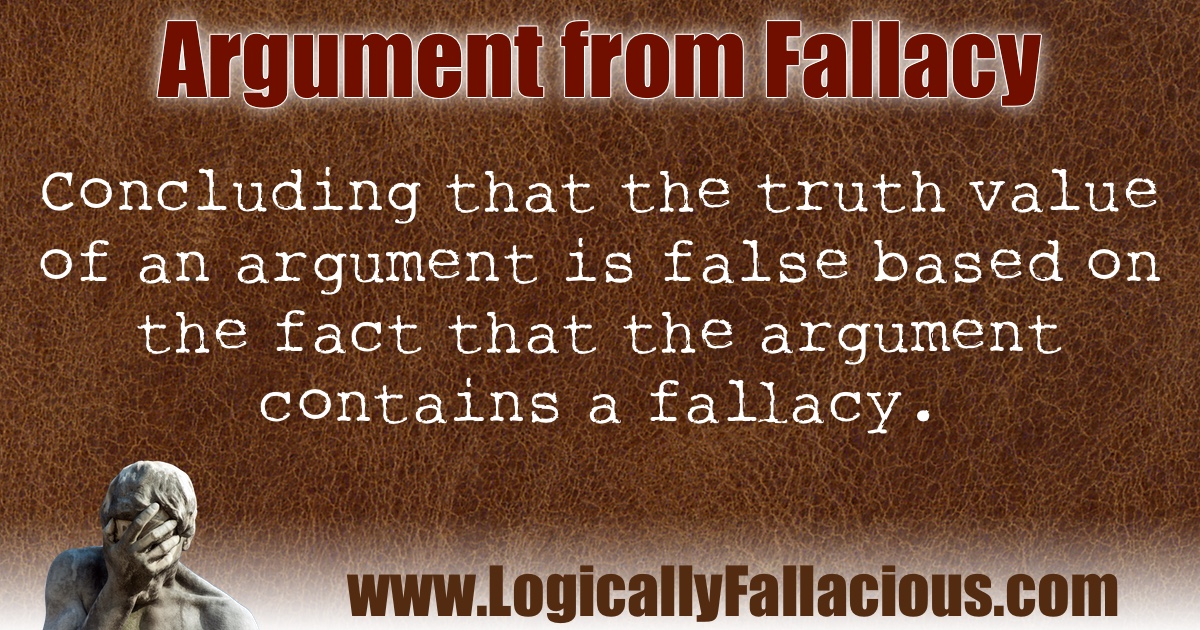argumentum ad logicam
(also known as: disproof by fallacy, argument to logic, fallacy fallacy, fallacist's fallacy, bad reasons fallacy [form of])
Description: Concluding that the truth value of an argument is false based on the fact that the argument contains a fallacy.
Logical Form:
Argument X is fallacious.
Therefore, the conclusion or truth claim of argument X is false.
Example #1:
Ivan: You cannot borrow my car because it turns back into a pumpkin at midnight.
Sidney: If you really think that, you’re an idiot.
Ivan: That is an ad hominem; therefore, I can’t be an idiot.
Sidney: I beg to differ.
Explanation: While it is true that Sidney has committed the ad hominem (abusive) by calling Ivan an idiot rather than providing reasons why Ivan’s car won’t turn into a pumpkin at midnight, that fallacy is not evidence against the claim.
Example #2:
Karen: I am sorry, but if you think man used to ride dinosaurs, then you are obviously not very well educated.
Kent: First of all, I hold a PhD in creation science, so I am well-educated. Second of all, your ad hominem attack shows that you are wrong, and man did use to ride dinosaurs.
Karen: Getting your PhD in a couple of months, from a “college” in a trailer park, is not being well-educated. My fallacy in no way is evidence for man riding on dinosaurs, and despite what you may think, the Flintstone’s was not a documentary!
Explanation: Karen’s ad hominem (abusive) in her initial statement has nothing to do with the truth value of the argument that man used to ride dinosaurs.
Exception: At times, fallacies are used by those who can’t find a better way to support the truth claims of their argument -- it could be a sign of desperation. This can be evidence for them not being able to defend their claim, but not against the claim itself.
Variation: The bad reasons fallacy is similar, but the argument does not have to contain a fallacy -- it could just be a bad argument with bad evidence or reasons. Bad arguments do not automatically mean that the conclusion is false; there can be much better arguments and reasons that support the truth of the conclusion.
I have never seen God; therefore, he does not exist.
This is a terrible reason to support a very strong conclusion, but this doesn’t mean that God does exist; it simply means the argument is weak.
Tip: It may be futile dealing with people who consistently present fallacious arguments. If you find they are simply not very good at reasoning, you can help them learn. However, if they are using fallacious arguments as a form of deception, this is a strong indicator of acting in bad faith.

References: